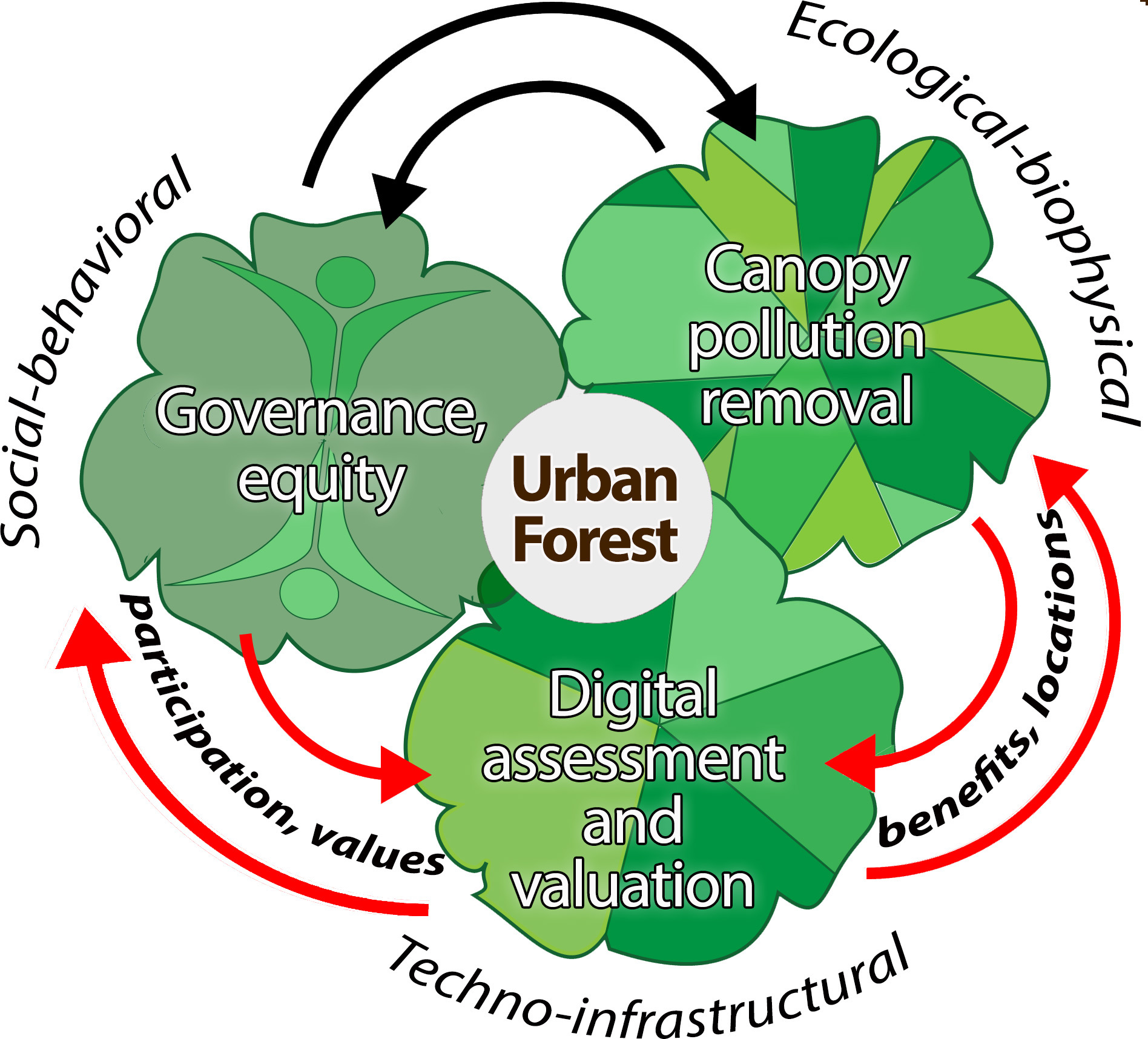
Digital Urban Forest
DISES: Integrating environmental justice into urban forest assessment and valuation tools: blueprint for the future
Urban forests provide communities with diverse benefits––including reduced exposure to poor air quality, stormwater runoff, excessive heat, and other health hazards. These benefits, or ecosystem services, are estimated to save urban residents billions of dollars annually. Increasingly, cities rely on digital technologies to monitor, plan, and manage urban forests and their ecosystem services. In theory, digital technologies aid in urban forest management decisions that improve environmental and human well-being. In practice, it remains unclear by whom, how, and in what context these technologies are implemented and the resultant outcomes. This award aims to understand to what extent digital technologies: (1) facilitate equitable access to tree-based ecosystem services; (2) involve urban residents in decision-making processes surrounding urban forests; and (3) represent peoples’ values and preferences for urban trees. The overarching goal of the project is to improve urban forest sustainability and equity at the human-technology frontier.
Given the significant role of technology in urban green infrastructure planning and development, urban forests have become a locus of interactions and feedbacks between social, ecological, and technological systems. In cities worldwide, decision makers rely heavily on urban forest assessment and valuation tools to quantify the ecological structure (e.g., tree canopy), function (e.g., air pollution removal), and economic value (i.e., dollars saved) of urban forests. Recent advances allow users to prioritize areas within cities for tree planting, further guiding decision-making processes. Thus, digital forest technologies have the potential to influence access to urban trees and their benefits (distributional justice), participation in decisions surrounding urban forests (procedural and recognition justice), and equity through prioritization of certain values over others (recognition justice). This award asks: How can urban forest assessment and valuation tools integrate equity concerns and participatory processes to support procedural, recognition, and distributional justice in urban forestry?
Using i-Tree as a model system, this award will investigate the mechanisms by which digital tools influence forest governance and equity (i.e., through participation and recognition) and potential canopy pollution removal (i.e., through benefits estimates and area prioritizations). Research will be conducted in multiple cities using a multi-scalar, mixed methods approach, including institutional analysis, survey and interview questions designed to facilitate participatory processes, leaf particulate matter sampling, and geospatial analysis using Geographic Information Systems (GIS), remote sensing, and land use regression modeling. The project draws on frameworks, approaches, and technologies from social science, ecology, geospatial science, and visual design to better understand the development and implications of human-technology partnerships in urban forest planning and management. Further, by creatively integrating environmental justice into a major model system for urban forest assessment and valuation, results could provide an example roadmap for other cities to follow, potentially transforming urban forest planning and management into a more just system.
Collaborators: Matthew Fry (UNT), Ashley Coles (Texas Christian University), John Van Stan (Cleveland State University), Yekang Ko and Jun Lee (University of Oregon), MiHyun Kim (Texas State University)
Collaborators: Matthew Fry (UNT), Ashley Coles (Texas Christian University), John Van Stan (Cleveland State University), Yekang Ko and Jun Lee (University of Oregon), MiHyun Kim (Texas State University)
Funded by NSF Dynnamics of Integrated Socio-Environmental Systems (DISES).